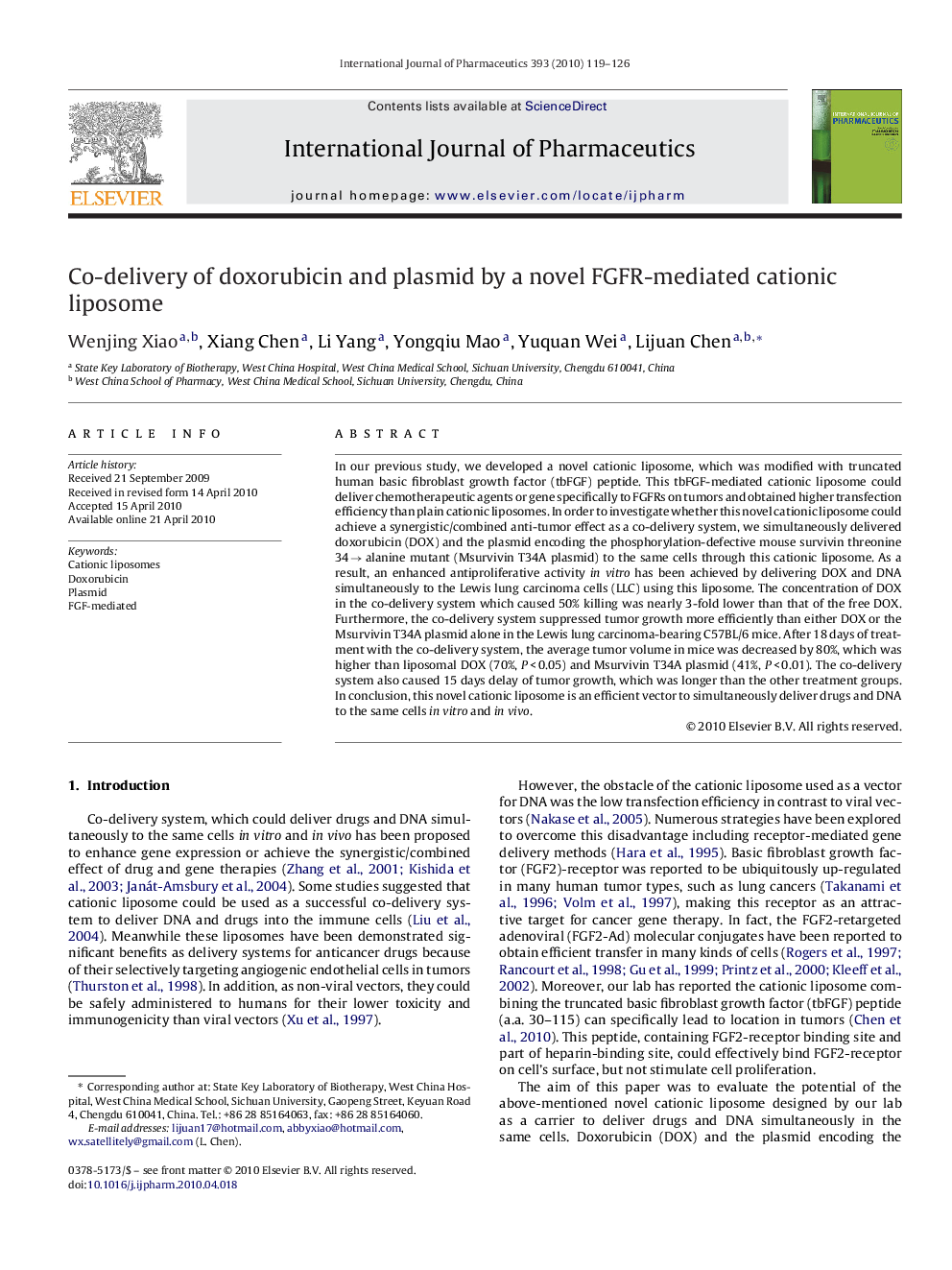| Article ID | Journal | Published Year | Pages | File Type |
|---|---|---|---|---|
| 2503865 | International Journal of Pharmaceutics | 2010 | 8 Pages |
In our previous study, we developed a novel cationic liposome, which was modified with truncated human basic fibroblast growth factor (tbFGF) peptide. This tbFGF-mediated cationic liposome could deliver chemotherapeutic agents or gene specifically to FGFRs on tumors and obtained higher transfection efficiency than plain cationic liposomes. In order to investigate whether this novel cationic liposome could achieve a synergistic/combined anti-tumor effect as a co-delivery system, we simultaneously delivered doxorubicin (DOX) and the plasmid encoding the phosphorylation-defective mouse survivin threonine 34 → alanine mutant (Msurvivin T34A plasmid) to the same cells through this cationic liposome. As a result, an enhanced antiproliferative activity in vitro has been achieved by delivering DOX and DNA simultaneously to the Lewis lung carcinoma cells (LLC) using this liposome. The concentration of DOX in the co-delivery system which caused 50% killing was nearly 3-fold lower than that of the free DOX. Furthermore, the co-delivery system suppressed tumor growth more efficiently than either DOX or the Msurvivin T34A plasmid alone in the Lewis lung carcinoma-bearing C57BL/6 mice. After 18 days of treatment with the co-delivery system, the average tumor volume in mice was decreased by 80%, which was higher than liposomal DOX (70%, P < 0.05) and Msurvivin T34A plasmid (41%, P < 0.01). The co-delivery system also caused 15 days delay of tumor growth, which was longer than the other treatment groups. In conclusion, this novel cationic liposome is an efficient vector to simultaneously deliver drugs and DNA to the same cells in vitro and in vivo.
